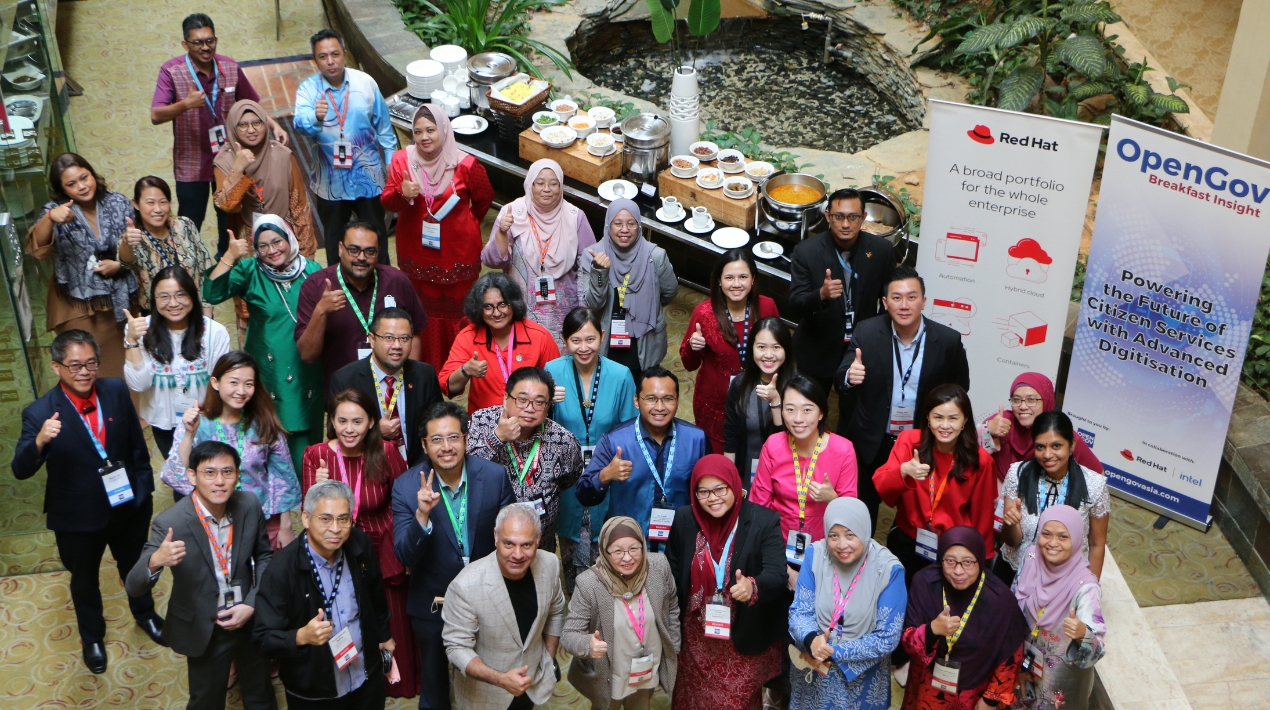
Malaysia intends to launch more catalytic projects to help the country achieve its goal of becoming a regional leader in the digital economy by 2030.
As part of the country’s efforts to establish itself as a global leader in the digital economy, MyDIGITAL was created to assist in the implementation of the government’s goals in this region. Hence, the government’s current priority is improving the accessibility of public services by establishing specialised digital infrastructure.
It aims to increase the scope and quality of public services and boost the effectiveness of e-government portals by monitoring and analysing developments. State and local governments must provide better services to citizens while stretching taxpayer ringgit as far as possible.
Data services must use traditional data to accomplish this by enhancing its robustness, availability and validity as well as by providing metadata-like elements that are not often present. Public sector technology leaders should focus on producing data outputs, such as organisational, transferable, and procedural data.
By implementing new technologies, organisations can make better use of their existing IT resources, freeing up staff to focus on modernisation projects like cloud-native development and hybrid cloud. Tools like data modelling, analytics, artificial intelligence (AI) and machine learning (ML) software are examples of enablers.
Moreover, the public sector must use technology to modernise services for the future by developing data-sharing policies and agreements, developing a plan for handling data-sharing circumstances including data minimisation, data security and privacy; and establishing safe access-controlled systems.
The OpenGov Breakfast Insight on 17 November 2022 at Pulse Grande Hotel, Putrajaya with Malaysia’s top public sector leaders offered the most recent information on the public sector digital transformation advancement journey towards the Shared Prosperity Vision 2030.
Enhancing Malaysian Public Services with Digital Technology

According to Mohit Sagar, CEO & Editor-in-Chief, OpenGov Asia, e-Government portals become more effective by tracking and analysing progress. This can be accomplished by enabling dedicated digital technology to improve public service delivery.
The government’s goal of making Malaysia a high-income country that is focused on digitalisation and is a regional leader in the digital economy is reflected in the MyDIGITAL initiative. And the steps taken to realise the MyDIGITAL aspirations are outlined in the Malaysian Digital Economy Blueprint.
The direction of the digital economy’s contribution to the Malaysian economy will be determined by this blueprint, which also lays the groundwork for the national drive toward digitalisation and the closing of the digital divide.
During Phase 1 (2021–2022), the Malaysian government intends to accelerate digital adoption to strengthen the digital foundation required for the swift and smooth rollout of Phases 2 and 3.
To make the country a regional leader in digital content and cybersecurity, Phase 3 (2026-2030) would focus on these areas after Phase 2 (2023-2025) has successfully driven digital transformation and inclusion across the digital economy.
“The public sector must use technology to update services for the future,” Mohit asserts. “They can do this by planning how to handle data-sharing situations; making rules and contracts for data-sharing; including privacy, data security, and data minimisation; and setting up security systems with controlled access.”
As an example, Mohit cited the Malaysian Government Central Data Exchange (MyGDX). It is a platform for data sharing that consists of several standards, tools, components, repositories and registries that would allow the transfer of data from various source agencies to target agencies in a predetermined data format.
MyGDX offers data brokerage services for information that is frequently requested by client-serving organisations. Cross-agency data-sharing management is made simpler and more effective by MyGDX. Government organisations that have registered with MyGDX as users currently include statutory bodies, local governments, and federal, state and agency organisations.
The nation’s Ministry of Communications and Multimedia Commission (MCMC) is the Personal Data Protection Department (PDPD). The primary goal of this division is to ensure that individuals’ private information gained through business dealings is not misappropriated or otherwise abused by user data.
Automation is a valuable tool that can help any organisation meet the needs and expectations of its clients while remaining cost-effective. It could also help in terms of real-time information for decision-making. “Automation can accelerate the digital transformation process by increasing productivity and ensuring service effectiveness,” Mohit explains.
Mohit is pleased to note that the Malaysian government aims to establish a strong cyber security culture. They want to gain knowledge on how to deal with new and developing technologies so that the country can minimise risk and safeguard its organisations using uniform policies, procedures and equipment.
All these measures will establish Malaysia as a digitally advanced one that offers its citizens the best possible experience with robust security.
Welcome Address

Kelvin Loh, Senior Manager, Solution Architecture, ASEAN, Red Hat explored how data helps improve people’s lives and speeds up the innovation process.
“Data is essential to business because it spurs innovation and increases competitiveness. However, pandemic-driven lockdowns and social isolation highlighted its significance and accelerated digital transformation to unprecedented levels.”
A well-implemented, robust data strategy is about more than just optimising costs and revenue. The effectiveness of the processes and the well-being of people will have a ripple effect on the community in which an organisation resides as well as the community from which employees hail.
According to Kelvin, modern technology is essential for providing effective medical care. Smart technology has recently attracted the attention of medical innovation and research on a global scale. It plays a crucial role in modern healthcare by making it easier to identify conditions and patterns of health and, most importantly, by enabling treatments that could save lives.
This level of technology includes voice and massive data communication, wearables that can monitor a person’s health, predictive detection of abnormalities and infections and AI-driven devices.
The state of humanity has significantly improved thanks to medical advances. Innovation for lifesaving entails developing, deploying, and updating ML models and software quickly.
The incalculable billions of dollars in savings to patients, their families, insurers, employers, governments and hospitals from avoided medical expenses associated with keeping people healthy or curing them of a life-long, chronic condition are a benefit of these medical advancements, both past and present, that is frequently overlooked.
Red Hat incorporates sustainability into all its business practices to lessen the company’s negative impact on the environment.
Enhancing energy efficiency programmes, expanding renewable energy contracts to support the full operations of the top-consuming facilities, and implementing sustainable design standards throughout our offices were among the 2021 initiatives. All three of these actions were taken to cut consumption.
Moreover, with data pointing to the business efficiencies, cost-benefits and competitive advantages it possesses, a large portion of the business community will cease to exist without it.
Cloud service providers run services on their servers, which are always connected to the internet. Since their business depends on customers trusting them, they use cloud security methods to keep customer information private and safe.
End-User Insight

Digital transformation in government, which makes use of cutting-edge technologies, aims to give citizens more accessible, reasonably priced, and customer-focused services on both a national and local level, believes David Graham, Chief Innovation Officer, City of Carlsbad.
Technology has an impact on almost every aspect of a person’s daily life, including access to food and healthcare, transportation efficiency and safety, socialisation and productivity.
Excitingly, the influence and reach of the internet have aided in the development of global communities and made it simpler to share knowledge and resources.
By combining cutting-edge digital technologies with human understanding, public sector organisations may be able to transform and streamline their operations, improving the value of taxpayer dollars and public services.
“Technology has an important role in society. Our way of life is changing and will continue to change in every way. It is changing how we communicate, do business, learn, and teach, as well as how our brains work,” says David.
The development of technology has also altered how people learn. To provide the best learning experience, people must adapt and create new strategies to meet the changing needs of the environment in the digital age.
In the context of the digital maturity model, David views connected communities as the transformative connections that can arise between data, systems and people, ultimately resulting in better citizen services and collective empirical, data-driven decision-making.
For instance, the idea of ridesharing connects people using data, helping both drivers and passengers choose the best partners for each trip based on geographic information, budgetary considerations, and service levels.
Organisations today are impacted by the technology tsunami, pressure for continuous improvement, a gap between operational needs and public tech experience, resource limitations and uncertainty.
There are four characteristics of the innovation culture:
- Reimagine
- engage
- Empower and
- Embed
The list of opportunities is long and includes things like community involvement, infrastructure, economic development, mobility, land use and housing, organisational excellence and public safety.
The pandemic has brought attention to the widespread issue of inequality in access to online services. In the current landscape, everyone should have access to connectivity, but many do not. This digital divide, David well knows, is a serious and pressing issue.
To ensure a fair distribution of digital opportunities across nations, locations, gender, socioeconomic status and age – in jobs, education, and quality of life – closing the gap is essential. The key to doing this is connectivity.
Data analytics, in David’s opinion, is significant because it aids in the performance optimisation of businesses. By finding more cost-effective ways to conduct business and storing a lot of data, companies can help reduce costs by incorporating it into their business model.
David advises organisations to properly define their problem, particularly in terms of technology, before strategising and developing solutions. “It is also necessary to have a vision and leadership to develop strategies and actions.”
Closing Remarks

Tammy Tan, Country Manager, Malaysia, Red Hat, agrees that the pandemic not only disrupted lives but also prompted organisations to redefine who they are and where they are going.
“Digital disruption is accelerating across businesses and governments, and all segments, hence we need to take advantage of these shifts to rebound faster,” Tammy says. “Although the road to complete recovery is lengthy, it is paved with opportunities.”
Organisations that had already begun their digital transformation journeys were able to recover with increased productivity and efficiency. These companies have changed the game by successfully utilising innovation and technology to move staff, clients, and businesses to the “Next Normal.”
According to reports, the digital revolution over the last two years has increased access to and use of financial services all over the world. the transformation of how people borrow, save and make payments.
“In Asia, for example, we saw an increase in digital payments, with many of our financial customers launching new apps and services to meet their ever-growing customer needs,” Tammy shares.
More than half of all ICT investment will be linked to digital transformation by 2024 according to IDC Digital Transformation Predictions. As CIOs and IT leaders define the new normal for themselves, open-source technology is likely to be at the forefront.
Future businesses will increasingly demand a cutting-edge digital infrastructure that is highly resilient, adaptable, agile, and scalable indefinitely to provide digitally enabled goods, services, and experiences.
“As a Red Hatter, I am reminded of our core value: WE use open-source software to help customers succeed,” says Tammy. “Because it brings together people with different experiences to work together to solve a common problem and spark new ideas, open source has paved the way as the innovation driver for the software industry.”
Red Hat provides its platforms to customers in the most straightforward manner possible across on-premises environments, cloud services, and the edge.
Organisations that consider themselves to be in the “leading” or “accelerating” stages of their digital transformation strongly prefer hybrid cloud when it comes to cloud strategy. Red Hat can robustly address typical customer challenges in the following areas through its offerings:
- Application Development
- Platform Simplification
- Enterprise Automation
- Data Science
- Edge
The company is passionate about more than just the software. They are keenly aware that their expertise and knowledge will lead to better times ahead. “At Red Hat, we think that being open unlocks the potential of the world, and we want to help you build your future right now.”

Cheow Siew May, Country Sales Manager, Malaysia, Intel Corporation recognises that hybrid operating models are becoming more common in industries. Today, machines, Internet of Things (IoT) devices and sensors are collecting more and more data, which organisations must decipher and use to build smart business operations.
For many organisations, the edge represents the next step in the evolution of the open hybrid cloud. Against this backdrop, Red Hat and Intel are setting up labs and innovation centres that will be supported by both companies. “We are working together to set up hands-on lab environments around the world to speed up innovation at the edge with customers and partners.”
The goal is to help organisations build data-driven solutions and applications that can support containerised hybrid cloud workloads and give the industrial ecosystem more sustainable operations and more flexibility. “Intel is committed to the cloud journey and we encourage all organisations to approach us to help them on theirs.”
Mohit knows that partnerships can help businesses take advantage of the current digital wave by enabling them to jointly develop game-changing innovations and business models.
Digital transformation is a journey and partnerships that are mutually beneficial help both parties enhance their interactions with customers and stakeholders, as well as their ability to compete, resulting in a substantial increase in profitable revenue.
In the end, digital transformation exists to serve citizens and customers. As the overall CX is improved through technology, it increases confidence in a nation’s government and reflects positively on an organisation’s recovery, reputation and revenue.
















